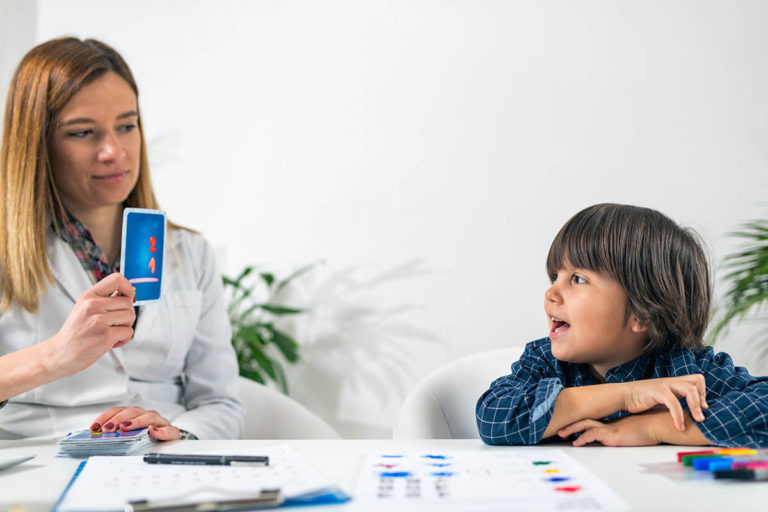
Why savouring good experiences inspires you to pursue your dreams
With a busy schedule and the pressure to always be moving onto the next new thing, it can feel like
Children’s cognitive (thinking) and social skills required for later success, can be helped by a term called responsive parenting.
When you respond to your children’s cues and needs with positive affection and emotional warmth, and give rich verbal input and attention to your child’s interests, it helps support their future learning and provides coping mechanisms for managing novelty situations and stress.
Your ‘positive’ interactions build your child’s sense of trust in you, which is internalised and enables your child to generalise their learning to new experiences. It promotes your child’s engagement in learning with you.
Your child’s behaviours are supported by you through acceptance, curiosity and cooperation. You also help foster self-regulation, that is, characteristics and abilities, that involve attention, control of emotions, and management of thoughts, feelings and behaviours.
Cognitively responsive behaviours, such as extending your child’s play by maintaining their interest, can lead to higher-level learning. Therefore, rather than involving your child in lots of different activities and interests, instead, give rich verbal input and encourage them to play for longer with one thing, as this will support higher levels of learning, as it helps sustain your child’s attention and cognitive skills, such as memory and thinking.
Cognitive skills help children to process sensory information in their environment, which later leads to higher order abilities such as evaluating, analysing, recalling, comparing, and understanding cause and effect.
As parents, responding in this way promotes joint engagement and reciprocity in the parent-child interaction and helps your child move on to more independent learning.
Promoting your child’s active engagement in problem solving is referred to as parental scaffolding and is a significant facilitator of children’s self-regulation and executive functioning skills, such as time management; organisation; understanding text; and solving multi-step problems.
In order to understand your child’s development, we will outline one of the theories commonly referred to, that is, Piaget’s stages of cognitive development.
Piaget, a Swiss Psychologist (1896 – 1980), was highly influential in the areas of developmental and educational psychology. He advised that children ‘move through’ four different stages of mental development. His theory focused on how knowledge is acquired and the nature of intelligence.
Piaget’s four stages are:
Stage Age
Sensorimotor Birth to 2 Years
Preoperational Stage 2 to 7 Years
Concrete Operational 7 to 11 Years
Formal Operational 12 Years and up
Piaget believed that children are active in their own learning, making observations and performing experiments. Through their actions with the world, they constantly add novel knowledge; build up their existing knowledge; and amend existing ideas to make sense of the new information they are exposed to.
According to Piaget, playing is not just about having fun, it is important to brain development. The change that occurs in children’s intellectual development is not just one of adding more knowledge. Rather, there is a change in how they think as they move through the four stages. At age 7, a child does not simply have more information about his world than he did at age 2; there is a qualitative difference in how he thinks about his world.
Ages: Birth to 2 Years
Key Characteristics and Changes in Development:
The infant sees the world through their sensations and movements
The infant learns about the world through sucking, grasping, looking and listening
The infant learns that objects still exist even when out of sight (object permanence)
The infant knows they are separate entities from the people and objects around them
The infant knows that their actions can make things happen in the world around them
During this stage of a child’s development, they learn physical actions, including, crawling and walking; they learn about language from the people whom interact with them; and they learn representative language, that is, that objects have names/words.
Babies focus their vision, reach out, explore, and learn about the things surrounding them.
Talk to your baby in a calm voice
When your baby makes sounds, repeat them and add words, as this will help him learn to use language
Read to your baby, as this will help him develop and understand language and sounds
Sing to your baby and play music, to aid brain development
Give your baby plenty of love and attention, and cuddle and hold him
Play with your baby when he’s alert and relaxed
When he starts moving around more and touching things he shouldn’t; distract him with toys and move him to a safe area
Remember to look after your own health, physical and mental, in order to be a great parent to your baby
Your toddler is now showing greater independence, moving around his environment more. He is aware of himself. He wants to explore new objects and shows a greater interest in people. He can show defiant behaviour. He is able to recognise himself in a mirror or in photographs. He is able to imitate others’ behaviours. He is usually able to recognise the names of familiar people and objects, say simple sentences and follow basic instructions.
How you as Parents can help your Child’s Cognitive Skills at this stage
Apart from helping your child meet his physical developmental milestones, such as sitting up and walking:
Read to your child every day
Utilise real objects in play activities
Connect play to the five senses
Ensure routines are in place to promote predictability and aid communication
Help your child count their fingers and toes
Use questions such as “Who has more?” or “Are there enough?
Read books with your child that have numerical elements/counting (with pictures)
Ask him to find objects for you or name body parts and objects
Play matching games, like shape sorting
Prompt him to explore new things
Talk with him and let him hear the names of objects clearly
Encourage him to dress and feed, with your help
Give much more attention to the behaviours you want to see more of, than the ones you don’t
Only use Time Out as a last resort (1 minute for every year, so 2 minutes for a 2 year old)
Make your child aware of what it is you want him to do instead of the behaviour you want to deter
Go out to the park or other places to nurture his curiosity about the world; and build up his knowledge of every-day objects.
Ages: 2 to 7 Years
Key Characteristics and Changes in Development
Children start thinking in symbolic terms, using words and pictures to represent objects
As children are egocentric, they have difficulty taking other people’s perspectives
The emergence of language is key at this stage. Children become more adept at pretend play. They master the ability to picture in their mind, remember, and understand objects that are not physically in front of them, that is, they are able to create mental images of objects and retain them in their minds to recall later.
At this stage, they do not usually understand that what they do, can impact on others, for instance, banging a door, or beating a toy drum constantly can cause their parents to have headaches. Nor can they do reverse operations, for instance, whilst some can understand that adding four to five makes 9; they will not be able to subtract four from 9.
Between the ages of 4 and 7, children are ‘sponges,’ soaking up novel information from their surroundings.
Allow your child to actively interact with a range of things in their environments, including books, people, games, and objects
Ask your child questions whilst he is engaged in a daily routine, allowing him to generate his own ideas
Draw attention to new things and encourage your child to question you about those things
Provide opportunities for problem-solving, using safe props, such as, blocks, sand and water
Question your child about characterising objects, for instance, when looking at geometric shapes, ask him to group the shapes according to similar characteristics, and ask, “How did you choose where each object belonged? Are there other ways to group these together? (Look at number of sides, colour, points)
Ages: 7 to 11 Years
Key Characteristics and Changes in Development
Children begin to think logically about concrete events
They start understanding the concept of conservation, e.g. that the amount of liquid in a tall, slim vase, is the same as that in a short, wide vase.
Their thinking becomes more organised, although still very concrete
Reasoning from specific information to a general principle (inductive logic) commences
Your child’s previous stage involving ego centrism starts to disappear as he develops the skill of seeing things from other people’s point of view.
At this stage, your child starts to think about the thoughts and feelings of other people and realises that not everyone will share his.
How you as Parents can help your Child’s Cognitive Skills at this stage
By giving your child access to hands-on experiences, in order to make abstract ideas concrete
Create timelines, build 3D models, and do science experiments to explore abstract concepts
Provide brain teasers and puzzles to nurture analytical thinking
Rather than asking closed questions, requiring a Yes/No response, use open-ended questioning, requiring sentences
Ages: 12 Years and above
Key Characteristics and Changes in Development
The adolescent starts to reason about hypothetical issues and think abstractly
Adolescent’s thoughts turn more to moral, ethical, social, philosophical and political issues
They begin to use deductive logic or reasoning from a general to specific information
At this stage, adolescents have the capacity to generate a range of potential solutions to problems; think more scientifically about the world in which they live; and plan for the future.
How you as Parents can help your Child’s Cognitive Skills at this stage
Provide explanations of concepts, using visual aids such as charts
Explore hypothetical situations and perhaps link them to current events
Help your child to broaden concepts wherever possible, for instance, if talking about a particular book, ask them to think of another book that has a similar story.


With a busy schedule and the pressure to always be moving onto the next new thing, it can feel like

There’s a big difference between hearing and listening. On the surface, it might seem that for both, we’re taking in

Your body image can affect how your children see themselves Think of the language you’re using, so rather than